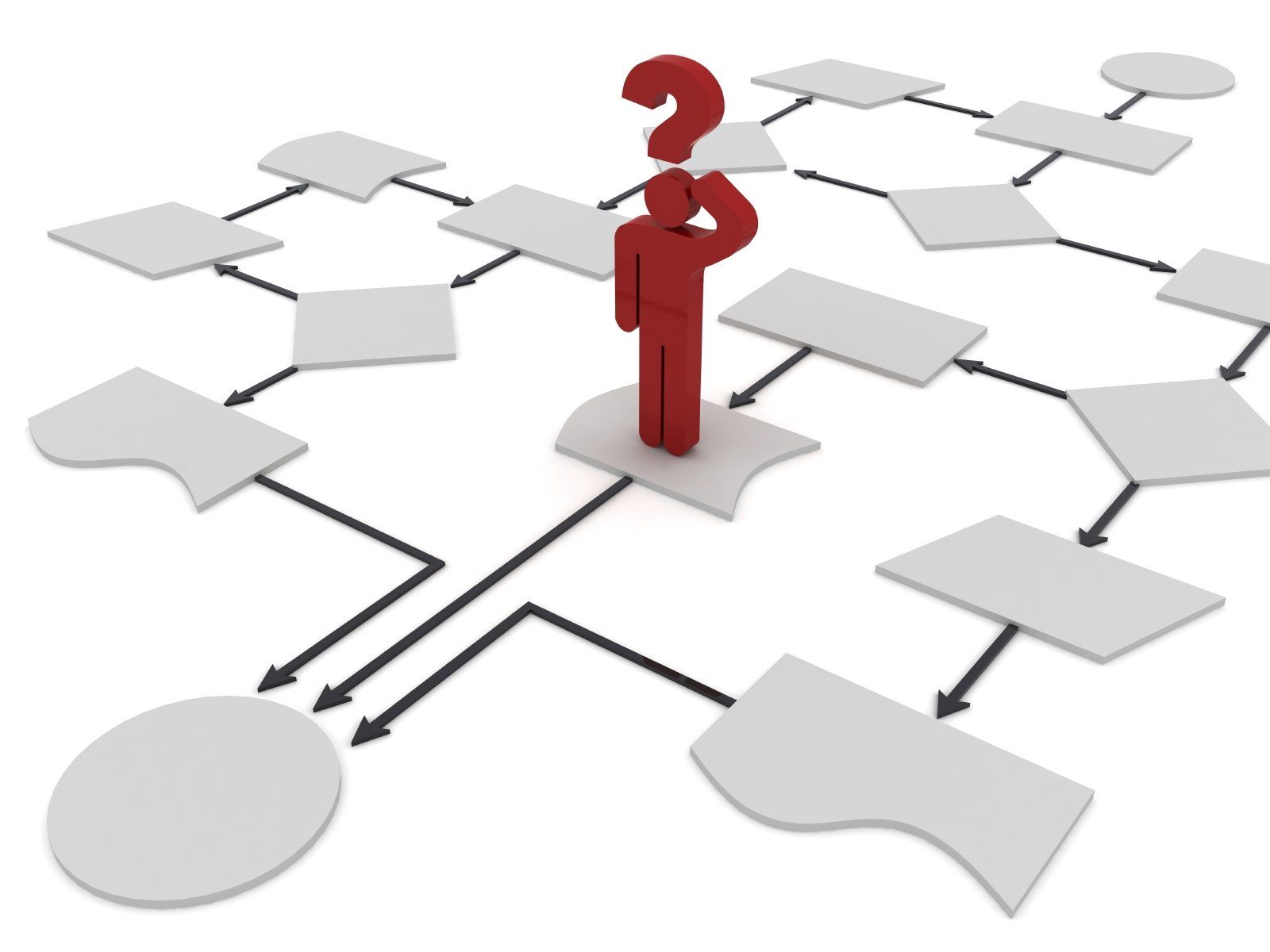The Narcissist And Their Children
Narcissists and their children - what you need to know

The relationship between a narcissist and their children is a unique one, full of contradictions. You see, not only will a narcissist subject their children to all the usual abusive behaviours that they subject everyone else to, but at the same time, they view their children as extensions of themselves; as not being separate from them.
If the child wants a scooter for their birthday, the narcissistic parent might suggest a mountain bike instead, because they they want one. If the child wants to play the piano, the narcissistic parent might insist they learn the violin, like they did. If the child wants to be a nurse when they grow up, they might suggest the job they always wanted to do, or do do, instead, whatever that may be, no matter how vastly different it is from what the child wants. It’s subtly different from just being controlling (which of course narcissists also are). Their demands on their children are often wholly unreasonable, coming from a place of pure self-interest with no ability to put themselves in their child’s shoes and view things from their perspective.
This is a complicated relationship. Because they don’t see the child as being separate from them, they violate their boundaries, even more than with other people. They might read diaries, go through their belongings, read their emails, or enter their room without knocking. They might vet their friends or attempt to become too ‘pally’ with them, perhaps even flirting with teenage children’s boyfriends or girlfriends. They might track them closely using their phone, or demand to know where they are at all times. They might become over-involved with their hobbies, intrusively so. A narcissistic parent will expect instant replies to messages, and if these are not forthcoming, especially when they can see that a message has been read, or that their child is online, this will induce narcissistic rage, as it challenges their version of reality of being one with their child.
This over-identification with the child also means that narcissists can find it very difficult to tolerate ‘imperfection’ (which can really be anything that is different to how they want them to be) in their child. It’s extremely common for narcissists (if they are the sort who have a need to appear invincible) to deny illnesses or conditions in their child, either not allowing them to be diagnosed in the first place, or not allowing them to be treated, as treating them would be an admission of imperfection. Asthma, dyslexia, even broken bones can be swept under the carpet by the narcissistic parent, in their own need to be all-perfect, and special. This is more than the child’s ‘weakness’ reflecting badly on them - it is an admission of weakness in themselves, which they simply can’t tolerate. They are their child, and their child is them. This is personal - quite literally.
(Note that some narcissists play the victim card and are riddled with illness, pain and disability, which they use an tool to gain sympathy and attention, so that they don’t have to openly hog the limelight. These narcissists may also use any illnesses in their children as a means to secure narcissistic supply and attention from others, mollycoddling them, and inventing or hyping up illnesses in them to this end). Some even go as far as full blown Munchausen’s syndrome by proxy, instigating hospital investigations and treatments for their children’s false illnesses.
Narcissists’ children will be triangulated and played off against others (often their own siblings or cousins), and will find themselves vying for the narcissist’s attention. They will be gas-lighted - lied to by the narcissist to the point where they their own reality is dismissed as false, so that they stop trusting their own perceptions of reality. They will be demeaned and shamed. If they are particularly good at something, behind closed doors they may find themselves on the receiving end of the narcissistic parent’s jealously. Confusingly, the narcissist may then, in front of an audience, hold up their child’s talent as a source of pride, as just another way to gain positive attention for themselves.
Now add to that the variant of triangulation that narcissistic parents often engage in - the dynamic of the ‘scapegoat’, the ‘golden child’ and the ‘invisible child’, and things become even more destabilising for the child. The children are assigned their roles, either as the one who can do no wrong, the one who can do no right, or the completely unseen and unheard one. Each resents the other, either secretly or openly, and each craves to be in the position of the golden child. And suddenly, often without warning, the roles change. Role shifts can occur every few days or every few years, keeping the children on their toes, on high alert. And even worse, the other parent often turns a blind eye, and enables the narcissistic parent in their appalling behaviour. They often even join in with the abuse, themselves as they try to curry favour with their narcissistic partner, themselves a hapless victim of covert emotional abuse.
In households where the narcissistic parent is single, children may find themselves being parentified, expected to discuss and look after the parent’s emotions or finances, to be their confidante, and have have household responsibilities inappropriate to their age. Guilt and responsibility sits heavy on the shoulders of these youngsters.
Children are often expected to vie for the role of ‘primary adorer’, and live in awe of their narcissistic parent. And they, almost inevitably will find themselves subjugating their own needs in preference for the needs of the parent, in order to keep the peace and avoid their parent’s narcissistic rage. Walking on eggshells becomes the norm for these children.
It is no wonder then, that children of narcissists very often become narcissistic themselves, having ‘learned’ narcissism from their very own beginnings. In developing ‘work arounds’ to appease their narcissistic parent, they are actually wiring these patterns into their brains as normal. This is also true of those children of narcissists who do not go on to become narcissists themselves. These children tend to become adults who exist to please others, and who see toxic behaviour from others as normal - a baseline. They go on to attract narcissists into their lives as partners and friends, and may go on to endure anything up to a lifetime of narcissistic abuse.
The tragic reality is that narcissists don’t (and can’t) love their children in the way that ordinary people do. They will tell you that they do (and most likely they will believe that they do), but their love can only be of the transactional, conditional type, even with their children. Narcissism is a condition of low empathy, entitlement and interpersonal exploitation. These, very sadly indeed, do not form the solid foundation required for unconditional, deeply felt love. And although the narcissist’s professions of love for their children might look convincing to the outside world (but more often, they look a little over the top), whatever feelings they do have are shallowly held, and changeable.
In short, and to put it bluntly, narcissists do not have what it takes to be good parents. They cannot put another’s needs first. They cannot care enough about another to have their best interests at heart (unless they gain narcissistic supply in some form from giving the appearance of caring). They can pretend, and they can pretend well, because pretending lies at the very core of their personality disorder. Every day they pretend to be the false persona, the outward image, that they project to the outside world. They do this because they have to - they cannot bear the feelings of shame that would result from having to face their own feelings of unworthiness and inadequacy that are actually simmering under the surface. They can even fool their own children, even into adulthood, in many cases, that they are a the best parent a child could have, and that they should feel lucky.
In divorce or separation, where children are involved, things can get even more complicated. Here, a narcissist will weaponise the children, turning them into instruments of abuse against the other parent. They will badmouth the other parent, lie about them in order to alienate the child from the parent, stop paying for the child (eg stop paying school fees or for after school activities) so that the other parent has to pay, using them as tools of financial abuse. They will try to be seen as the ‘winner’ by trying to get the child to primarily reside with them, regardless of the practicalities of this, inflicting a painful blow on the other parent. The child will be seen as a way to cause suffering on the other parent, who they wish to annhilate, as a result of their narcissistic rage caused by the breakdown of their relationship. They will refuse to cooperate on anything at all, and co-parenting becomes a tiring game of counter-parenting. And all the while, the narcissistic parent will be lovebombing the child, giving false justifications for any of their actions which might otherwise arouse suspicion in the child. All this will be delivered to the child with trademark conviction and magnetic allure.
As the non-narcissistic parent you have an important job to do in setting up your child for a heathy future. Whilst badmouthing the narcissistic parent is a no no, and will mostly likely back-fire against your relationship with your child, you have a fine line to tread. If you are badmouthed by the narcissist, you should (if the content is age appropriate) provide the truth to your child, without actually accusing the narcissist of lying. When the narcissist is late picking up or returning the children, you should stress the importance of being on time, and respectfulness, again without being openly critical of the narcissist. But mostly, you need to lead by example. Be the parent who encourages the child’d hopes and dreams. Be the parent who supports them. Be the parent who listens to them and takes them seriously. Who celebrates them as an individual. Who loves them unconditionally, but who sets firm boundaries and rules. The stability of your love, and the equality of it with your other children will be eventually be noticed as contrasting with the narcissist’s behaviour.
As regards parenting, you’ll never do it perfectly, and you’ll always beat yourself up about it. You’ll even end up unwittingly inflict some damage on your children yourself, as all parents do, by definition, but at least with awareness of what you are facing, you stand a great chance of helping your children towards a healthy future.
"This means that a child should want what they
want, should be
who they want (preferably a ‘mini - me’) and should do
what they want."
They should enjoy what they enjoy, eat what what they like to eat, be good at what the narcissist is good at, and generally subjugate who they are as an independent, unique person to the desires of their narcissistic parent.
If the child wants a scooter for their birthday, the narcissistic parent might suggest a mountain bike instead, because they they want one. If the child wants to play the piano, the narcissistic parent might insist they learn the violin, like they did. If the child wants to be a nurse when they grow up, they might suggest the job they always wanted to do, or do do, instead, whatever that may be, no matter how vastly different it is from what the child wants. It’s subtly different from just being controlling (which of course narcissists also are). Their demands on their children are often wholly unreasonable, coming from a place of pure self-interest with no ability to put themselves in their child’s shoes and view things from their perspective.
This is a complicated relationship. Because they don’t see the child as being separate from them, they violate their boundaries, even more than with other people. They might read diaries, go through their belongings, read their emails, or enter their room without knocking. They might vet their friends or attempt to become too ‘pally’ with them, perhaps even flirting with teenage children’s boyfriends or girlfriends. They might track them closely using their phone, or demand to know where they are at all times. They might become over-involved with their hobbies, intrusively so. A narcissistic parent will expect instant replies to messages, and if these are not forthcoming, especially when they can see that a message has been read, or that their child is online, this will induce narcissistic rage, as it challenges their version of reality of being one with their child.
This over-identification with the child also means that narcissists can find it very difficult to tolerate ‘imperfection’ (which can really be anything that is different to how they want them to be) in their child. It’s extremely common for narcissists (if they are the sort who have a need to appear invincible) to deny illnesses or conditions in their child, either not allowing them to be diagnosed in the first place, or not allowing them to be treated, as treating them would be an admission of imperfection. Asthma, dyslexia, even broken bones can be swept under the carpet by the narcissistic parent, in their own need to be all-perfect, and special. This is more than the child’s ‘weakness’ reflecting badly on them - it is an admission of weakness in themselves, which they simply can’t tolerate. They are their child, and their child is them. This is personal - quite literally.
(Note that some narcissists play the victim card and are riddled with illness, pain and disability, which they use an tool to gain sympathy and attention, so that they don’t have to openly hog the limelight. These narcissists may also use any illnesses in their children as a means to secure narcissistic supply and attention from others, mollycoddling them, and inventing or hyping up illnesses in them to this end). Some even go as far as full blown Munchausen’s syndrome by proxy, instigating hospital investigations and treatments for their children’s false illnesses.
"The strange thing is that at the same time as seeing their children as extensions of themselves, narcissists will treat their children in the same abusive ways as they treat others."
Their children are not immune from being at the receiving end of the narcissist's cycle of ‘idealise and devalue’, where they are alternately lovebombed, (showered with praise and attention), and then subtly devalued, criticised, withdrawn from and put down. This leaves them confused and hurt, and they start jumping through hoops to please the parent enough to re-enter the idealisation phase again. This is a cycle that repeats ad infinitum, over and over again, even when the child becomes an adult themselves.
Narcissists’ children will be triangulated and played off against others (often their own siblings or cousins), and will find themselves vying for the narcissist’s attention. They will be gas-lighted - lied to by the narcissist to the point where they their own reality is dismissed as false, so that they stop trusting their own perceptions of reality. They will be demeaned and shamed. If they are particularly good at something, behind closed doors they may find themselves on the receiving end of the narcissistic parent’s jealously. Confusingly, the narcissist may then, in front of an audience, hold up their child’s talent as a source of pride, as just another way to gain positive attention for themselves.
Now add to that the variant of triangulation that narcissistic parents often engage in - the dynamic of the ‘scapegoat’, the ‘golden child’ and the ‘invisible child’, and things become even more destabilising for the child. The children are assigned their roles, either as the one who can do no wrong, the one who can do no right, or the completely unseen and unheard one. Each resents the other, either secretly or openly, and each craves to be in the position of the golden child. And suddenly, often without warning, the roles change. Role shifts can occur every few days or every few years, keeping the children on their toes, on high alert. And even worse, the other parent often turns a blind eye, and enables the narcissistic parent in their appalling behaviour. They often even join in with the abuse, themselves as they try to curry favour with their narcissistic partner, themselves a hapless victim of covert emotional abuse.
In households where the narcissistic parent is single, children may find themselves being parentified, expected to discuss and look after the parent’s emotions or finances, to be their confidante, and have have household responsibilities inappropriate to their age. Guilt and responsibility sits heavy on the shoulders of these youngsters.
Children are often expected to vie for the role of ‘primary adorer’, and live in awe of their narcissistic parent. And they, almost inevitably will find themselves subjugating their own needs in preference for the needs of the parent, in order to keep the peace and avoid their parent’s narcissistic rage. Walking on eggshells becomes the norm for these children.
It is no wonder then, that children of narcissists very often become narcissistic themselves, having ‘learned’ narcissism from their very own beginnings. In developing ‘work arounds’ to appease their narcissistic parent, they are actually wiring these patterns into their brains as normal. This is also true of those children of narcissists who do not go on to become narcissists themselves. These children tend to become adults who exist to please others, and who see toxic behaviour from others as normal - a baseline. They go on to attract narcissists into their lives as partners and friends, and may go on to endure anything up to a lifetime of narcissistic abuse.
The tragic reality is that narcissists don’t (and can’t) love their children in the way that ordinary people do. They will tell you that they do (and most likely they will believe that they do), but their love can only be of the transactional, conditional type, even with their children. Narcissism is a condition of low empathy, entitlement and interpersonal exploitation. These, very sadly indeed, do not form the solid foundation required for unconditional, deeply felt love. And although the narcissist’s professions of love for their children might look convincing to the outside world (but more often, they look a little over the top), whatever feelings they do have are shallowly held, and changeable.
In short, and to put it bluntly, narcissists do not have what it takes to be good parents. They cannot put another’s needs first. They cannot care enough about another to have their best interests at heart (unless they gain narcissistic supply in some form from giving the appearance of caring). They can pretend, and they can pretend well, because pretending lies at the very core of their personality disorder. Every day they pretend to be the false persona, the outward image, that they project to the outside world. They do this because they have to - they cannot bear the feelings of shame that would result from having to face their own feelings of unworthiness and inadequacy that are actually simmering under the surface. They can even fool their own children, even into adulthood, in many cases, that they are a the best parent a child could have, and that they should feel lucky.
"Don’t forget that grandiose, overt narcissists can be immense fun. They can be the life and soul of the party. They can turn heads and deploy devastating charm. Their charisma will likely have their children’s friends telling them how very lucky they are to have such a ‘fun’, or ‘cool’ or ‘nice’ dad or mum. This type of narcissist can be simultaneously brilliant and awful. Flashy and irreverent. Delicious rule breakers, with numerous sycophants in tow. It’s easy to see how a child, who understands none of this, has little chance of protecting themselves from abuse that they cannot even recognise."
How narcissists treat their children in divorce
"Being the child of a narcissist is hard, but so is being the non-narcissistic parent."
As the non-narcissistic parent you have an important job to do in setting up your child for a heathy future. Whilst badmouthing the narcissistic parent is a no no, and will mostly likely back-fire against your relationship with your child, you have a fine line to tread. If you are badmouthed by the narcissist, you should (if the content is age appropriate) provide the truth to your child, without actually accusing the narcissist of lying. When the narcissist is late picking up or returning the children, you should stress the importance of being on time, and respectfulness, again without being openly critical of the narcissist. But mostly, you need to lead by example. Be the parent who encourages the child’d hopes and dreams. Be the parent who supports them. Be the parent who listens to them and takes them seriously. Who celebrates them as an individual. Who loves them unconditionally, but who sets firm boundaries and rules. The stability of your love, and the equality of it with your other children will be eventually be noticed as contrasting with the narcissist’s behaviour.
Teach them empathy from an early age by discussing other peoples’ feelings. Even when reading bedtime stories you can pause to ask, ‘and how did you think the character felt then?’ If you can build empathy in your child, a skill which can be learnt, then you have effectively stopped your child from becoming a narcissist as an adult. So much narcissistic behaviour comes from the inability to care about others because they cannot feel things from another’s perspective, because they were never able to learn empathy. But, like all things, too much empathy is also a bad thing - it can lead a person to give and give to another, and set them up for being preyed on by users. Encouraging you child to learn how to recognise and express their own needs, and how to exert their own boundaries will also be important here. Again, leading by example is the way forwards.
"Parenting, as we all know, is a tough job, but it is twice as hard when you have to counteract the damage that is being (often covertly) inflicted on the child by a narcissistic parent."
Even years post separation or divorce from the narcissistic parent, you will be battling them regarding the children, feeding their narcissism through the drama, conflict and sympathy they will use the situation to garner from others. There is no such thing as co-parenting with a narcissist, and ‘Parallel Parenting’ is the best model to adopt, where you severely limit your contact with the narcissist to only the essentials regarding the children, and accept that the children live by the rules of whichever house they are staying in at the time. No school or family events are attended jointly, and you use the grey rock technique to communicate with them (see my communication tactics blog posts). Your own healing is important here too, and the closer you can get to the gold standard of ‘no contact’ with the narcissist by reducing contact to the absolute bare minimum, the faster you can heal.
As regards parenting, you’ll never do it perfectly, and you’ll always beat yourself up about it. You’ll even end up unwittingly inflict some damage on your children yourself, as all parents do, by definition, but at least with awareness of what you are facing, you stand a great chance of helping your children towards a healthy future.

Do I actually need a lawyer? You may be wondering whether you need a lawyer if you are divorcing, as it is possible in some countries, including in the UK, to apply for a divorce online. However, here in the UK at least, there are three bits to the process – the paper exercise of the divorce, which you don’t need a lawyer for, and the other two parts – the finances and the children. Settling the finances with a narcissist is unlikely to happen without legal input, sadly, as narcissists have a huge sense of entitlement, a need to ‘win’, a lack of empathy regarding your circumstances, a need for narcissistic supply through causing drama and conflict, a belief that you (once you have split up) are ‘all bad’ and deserving of punishment, and a need to draw out the process for as long as possible, by continually shifting goalposts. Add to that the fact that they are practised liars, and will not tell the truth about their finances, and you can see why successfully sorting things out on your own with them is highly unlikely (and probably impossible). If they decide to cause conflict with the children, as they often do, lawyers may well also be needed here. Note that it is possible to represent yourself in court, without a lawyer, but that this tends to work best later on, when you have gained experience in how the system works, and are feeling emotionally stronger. I discuss the benefits of being a ‘Litigant in Person’ in Chapter 28 of my book Narcissists in Divorce: From Leaving to Liberty - The Truth, The Whole Truth and Nothing But The Truth. In the UK there are two types of divorce lawyer – the ‘solicitor’ who does the day-to-day work and liaises directly with you, and the ‘barrister’ (who speaks on your behalf in court, and gives more complicated legal advice). If your barrister has been instructed by your solicitor you can only contact them via your solicitor. However, some barristers (‘direct access barristers’) can be instructed directly by clients, without a solicitor being involved. I need to be brutally frank here, and tell you that far too many lawyers will not disclose the reality of the dysfunctional court system to clients, and they have a vested commercial interest in protracted cases, which narcissistic divorces often become. The wrong lawyer can easily rack up your legal bills but leave you with little to show for it. This is particularly true in the UK for solicitors. So, if you happen to be a UK father, whose narcissistic wife is preventing you from seeing your children, you might want to contact Fathers 4 Justice (www.fathers-4-justice.org) before deciding on whether to instruct a solicitor. Unfortunately, no such cost-effective organization exists exclusively for mothers battling abusive fathers in the UK. However, the UK charity Familes Need Fathers (fnf.org.uk) does provide resources to parents of any gender, for a membership fee. But regardless of where in the world you live, most of you will need to know how to go about finding the right lawyer. The fact of the matter is this: most lawyers do not understand Narcissistic Personality Disorder to the extent they need to, to be able to help you effectively. And many will simply pooh-pooh the idea that your partner is a narcissist, because this is a term that commonly gets bandied around incorrectly, especially in break-ups. I recently gave a talk to 250 lawyers about NPD, during which I asked how many of them had been told by a client that their ex was a narcissist, within the last 2 months. Every single hand went up. I then asked how many of them, having spent a bit of time on these cases, now thought that they were dealing with a ‘real’ narcissist. Only five hands remained in the air, and as I gave my talk, I could see these lawyers nodding their heads vigorously, as I described true narcissistic divorce behaviors. So you can see the problem – the ‘buzzword’ use of the narcissism word, in the general population, means that lawyers are unlikely to take your concerns seriously, until significant emotional, legal and financial damage has already been done. This means that, unless you have a strong recommendation of someone who specifically understands NPD, you are going to have to interview quite a few lawyers (they will often offer free initial consultations) until you find the best one for you. It may be that you have to settle for a lawyer who understands domestic abuse and coercive control instead, but only if they are willing to learn about NPD, and will take all of your concerns seriously. It may also serve you to choose a lawyer who is not in your local area, especially as, since Covid, most consultations can be carried out remotely. You may have a distinct advantage if you do this, as an out-of-area lawyer will not have a reputation of ‘being reasonable’ to maintain with your local judges, and is more likely to actually fight for you, rather than trying to tiptoe around or placate the judge. Lawyers care deeply how their local judges view them – and this can be to your detriment. How to interview a potential lawyer When interviewing potential lawyers, you will need to: Explain the narcissist’s behaviors Explain how you have been affected Ask the lawyer specific questions Explaining your partner’s behaviors Describe the behaviors that you (and any children) have been subjected to during your relationship, with specific examples of each behavior. It’s definitely worth writing these down, to keep you focused. Include examples of: Physical abuse (often not present at all in NPD, however). Rape or sexual boundary violations. Repeatedly putting you down, criticizing you, or calling you names. Isolating you from friends and family. Manipulative behaviors. Exploitative behaviors where they have used you for their gain. Passive aggression (such as silent treatments or stonewalling you). Projection (accusing you of things that they themselves are doing or being, for example accusations of affairs or flirting). Favoring a ‘golden child’ over a ‘scapegoat’, and having an ‘invisible child’. Going through repeated cycles of being nice to you, but then being nasty (the ‘cycle of idealization and devaluation’). Lovebombing at the start of the relationship. Low empathy towards you and the children. Entitled behavior. Controlling behaviors such as: Controlling your finances, or preventing you from having a job. Restricting your access to transport. Threats, including of blackmail (e.g. revenge porn). Threats if you leave them (including threats of suicide). Monitoring how you spend your time. Monitoring your communication with others. Exerting control over your everyday life, such as dictating where you go, who you see, what you wear and preventing you from sleeping. Stopping you from accessing support services, such as medical services or specialist support (including for the children). Forcing you to take part in criminal activity such as taking the blame for their offenses (e.g. speeding tickets). Destroying or damaging household goods, or cruelty to pets Gaslighting such as by: Telling you that you are ‘crazy’. Telling you lies that make you question your reality. Rewriting history so that you question your memory. Invalidating your feelings (e.g. telling you that your feelings are ‘wrong’). Explaining how you have been affected Include examples such as: Walking on eggshells. Continually trying to please them with ‘fawning’ behaviors. Anxiety, depression, panic attacks, complex PTSD. Any physical illnesses. Loss of confidence/self-esteem/support systems. Asking the lawyer specific questions You will want to know: What they understand by the term Narcissistic Personally Disorder. If they tell you that they ‘don’t believe in labelling people’, that ‘everyone thinks their ex is a narcissist’, that narcissists are ‘just another word for high-conflict’ or that it ‘makes no difference whether your partner is a narcissist’ to the legal process and your divorce, get out of there, immediately. If they blithely tell you that they are completely au fait with dealing with narcissists, make sure they tell you the specifics of how narcissists behave in divorce. (A client of mine was once duped by his lawyer into believing that he understood NPD because he had written a blog post on his firm’s website about it. £85,000 later, and no further on in the case, it became patently clear that his lawyer’s blog post had simply been a way to jump on the NPD bandwagon, to attract clients, and in fact, he didn’t really have a clue.) How much experience they have of narcissistic divorces, and what they think the chances are of settling things out of court (through negotiation through lawyers or mediation, for example). If they pride themselves on never or rarely having cases that end up in court, they probably do not have the experience that you need, as the fact is that most divorces like this end up in court. Whether they think narcissists ‘calm down’ over time, and become more reasonable as the divorce progresses. The correct answer is that they do not. If they get this wrong, they have failed the interview. Whether narcissists have the best interests of their children at heart. If they tell you that ‘all parents love their children, whether narcissists or not’ they will not be right for you, and they will enable a lot of damage to be done before they work out the truth. Whether they will help you write any witness statements for court, and put together your financial disclosure, or whether they will just leave this to you. Whether they will go through your partner’s financial disclosure (such as their bank statements) in detail with you, looking for discrepancies and missing information, or whether they expect you to do this without them (most simply do the latter). Whether they are willing to learn about NPD (on their own time) and take on board what you tell them about it, so that your case runs more smoothly. Key takeaways It may take a while to find a lawyer who fits the bill. But whatever you do, don’t choose a ‘nice’ lawyer (with little experience of domestic abuse, coercive control or NPD) over a less personable one who does have the required experience. So often, my clients admit to me that they gave their kindly lawyer repeated chances, because they ‘liked them’, and because they thought that they could learn about NPD during their case, and so help others later on. I’m going to be stern here: you do not just need ‘nice’, ‘understanding’ and ‘sympathetic’ – you need effective too. And as to educating your lawyer so that they can help others (if this is part of your thought process) – again, this may go against the grain, but now is the time for prioritizing your needs and those of your family. I also have to caution you that a senior lawyer who seems very experienced may actually be too stuck in their ways to be effective in your case, although that’s not always true. Conversely, a very junior lawyer might find themselves overwhelmed by everything that comes their way during your case, but be unable to be honest about this with you, and carry on regardless. I’ll warn you now – you may well have to change lawyers at some point in the process, and I explain this further in Chapter 31 of Narcissists in Divorce: From Leaving to Liberty - The Truth, The Whole Truth and Nothing But The Truth , from which this blog post was adapted.

The word "narcissist" is ubiquitous, but are we using it correctly or is it just a buzzword? Expert Dr Supriya McKenna explains what real narcissism is Do you know a narcissist? If you think of your everyday acquaintances, who springs to mind as being a possible narcissist? Your housemate, who is too selfish and lazy to do her own washing up? Your sister, who has never left the house without full make up on? Your work colleague, who is obsessed with designer clothes? Your partner, who cheated on you? Your best friend, who insists on driving a sports car he can’t afford? That date, who ghosted you? But are these people actually narcissists? Well, maybe—but having these traits in isolation doesn’t tell us much. How to recognise a narcissist True "narcissism" is actually Narcissistic Personality Disorder (NPD), a real, diagnosable personality disorder, and there is a precise range of very specific behaviours that result from having it. These behaviours go well beyond being just mean, vain or selfish—undesirable and irritating though these are. "You (or someone you know) will definitely know a real narcissist—but it might not be who you think it is" As a society, we have collectively misappropriated the narcissist word—and in using it incorrectly we are downplaying the seriousness of what real narcissism (NPD) is. And worse, because of this, we are missing the true narcissists in our midst. Narcissistic Personality Disorder is estimated to affect up to one in twenty people, although exact figures vary. Each narcissist affects several people to some degree—their partners, children, extended family, friends, work colleagues and even their casual acquaintances. What is Narcissistic Personality Disorder? NPD is fundamentally a condition of low empathy, where the person has a very limited ability to step into another person’s shoes and feel their pain or joy (or any other emotion).This means that narcissists relate to people on a very different level to an empathic person. Essentially, they cannot deeply care about you, other than in the context of what you can do for them. Confusingly, narcissists are usually able to feign empathy. If we add this low empathy to another hallmark feature of narcissism, a sense of entitlement, you can see how narcissists are able to exploit people for their own gain.The narcissist you know may be exploiting different people for different things. They might be taking credit for other people’s work, using their partner as a domestic slave or provider of sex, and using their children as a way to gain admiration from others. "Narcissists are good at feigning empathy, but they cannot truly feel it" Narcissists see people merely as objects, and their exploitation of others often tips into psychological (and sometimes also physical) abuse. Are narcissists born or made? NPD is partly genetic, but it mostly results from how, as children, the person adapted to a difficult upbringing. As a child, the narcissist developed coping strategies which became "wired in". It’s this wiring that leads to the specific patterns of behaviour that adult narcissists exhibit. The vast majority of people with NPD cannot be cured, although a few specialised psychotherapists report some success. At the core of every single narcissist is a feeling of low self-esteem and shame. But these are feelings which a narcissist cannot bear, so they construct a false persona that they hold up to the outside world to hide behind. "At the core of every single narcissist is a feeling of low self-esteem and shame" This false persona is a shield. It protects the narcissist from feeling their true feelings—and it is very convincing to the onlooker indeed. But a narcissist’s protective false persona can only survive in the presence of external validation. "Narcissists need attention from others, at all times, preferably through admiration and adoration." In the absence of this, they secure attention by causing drama and conflict—and even by instilling fear into others. When a narcissist is getting enough attention their false persona is strong, and they can believe that they are special and unique. The most important thing to know about narcissists is that it is their desperate need to feel special that drives all of their behaviours, and that their need for attention (which is known as "narcissistic supply") is constant—their armour will crumble without it. Types of Narcissistic Personality Disorder There are four major types of false persona to look out for, which can overlap: The Exhibitionist Narcissist appears to be devastatingly charismatic, and may be clever, funny, or very sexy. They relish attention. The Devaluing Narcissist is openly toxic. They put people down in order to feel better about themselves through ridiculing, shaming, badmouthing and name-calling. The Communal Narcissist presents themselves as a do-gooder—needing to be seen by others as the most generous, most kind or the most caring. And the Closet Narcissist, the hardest type to spot, shies away from the limelight, but often associates with people who are special to feel special by association. They get their attention in much more sneaky ways than the other types of narcissist—often through playing the victim, and they appear quiet, shy and effacing. "But, regardless of outward type, all narcissists exploit others, and no matter how much love they receive, they cannot be "loved better". " Signs of narcissistic behaviour Telltale behaviours of narcissism "Love bombing" at start of relationships Repeating cycles of niceness and nastiness An inability to be alone Lack of deep, long term friendships Inability to take the blame or responsibility, blaming others instead An inability to apologise and mean it Violating boundaries Lying and gaslighting Episodes of rage Jealousy Accusing others of what they themselves are doing Moral hypocrisy Playing the victim Lack of empathy Entitlement Exploiting others Aggression (including passive aggression) Devaluing and badmouthing others (putting them down, ridiculing them) Manipulating and playing people off against each other Selfishness Conditional, shallow love A need to control others "Lying, gaslighting and manipulation are all hallmark traits of Narcissistic Personality Disorder " A true narcissist will exhibit nearly all of these behaviours and, the closer you are to them, the more of them you will see. But because they intersperse them with nice times, playing what I call "Nice Narcissist, Nasty Narcissist’" you are likely to find yourself sucked back into the relationship repeatedly. This is what real narcissism looks like, and it’s unhealthy, toxic and hard to escape from. But it’s not so hard to recognise—once you know what to look out for. This article originally appeared in Reader's Digest - you can read it here .














